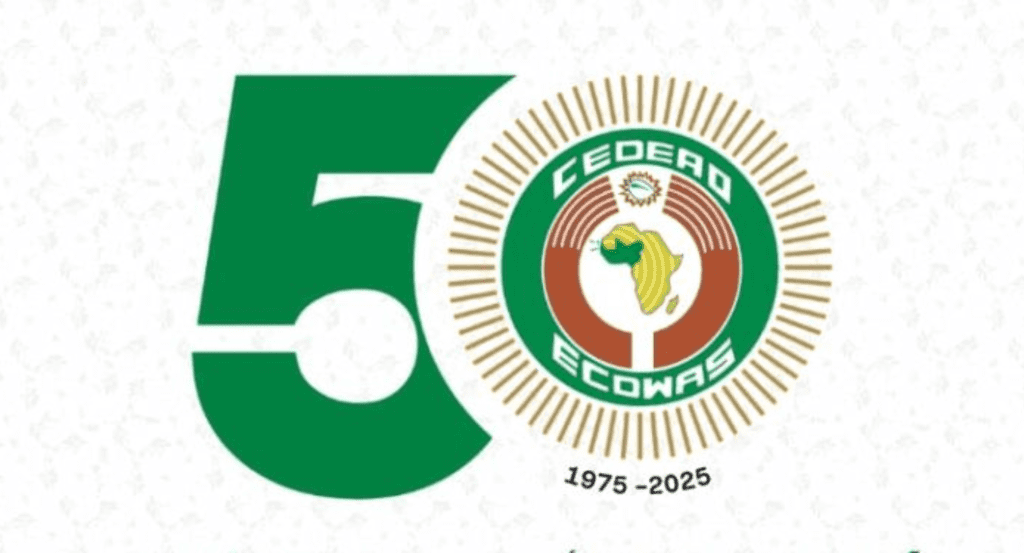The ECOWAS 50th anniversary marks a crucial milestone for the Economic Community of West African States. Since its establishment in 1975, ECOWAS has played a key role in fostering economic growth, maintaining peace, and strengthening political ties across West Africa. However, the withdrawal of Mali, Niger, and Burkina Faso presents one of the biggest challenges the regional bloc has faced in its five-decade history.
ECOWAS 50th Anniversary: Key Achievements Over the Years
Over the past 50 years, ECOWAS has significantly contributed to economic cooperation and political stability. Through initiatives such as the ECOWAS Trade Liberalisation Scheme (ETLS) and the Common External Tariff (CET), member states have improved trade relations and boosted economic integration. The bloc has also deployed peacekeeping missions in conflict-ridden nations like Liberia, Sierra Leone, and The Gambia, reinforcing its commitment to regional stability.
SEE ALSO: 13th ECOWAS African Wrestling Tournament Opens in Abuja, Marking a New Era for Gender Inclusion
ECOWAS 50th Anniversary: Challenges Threatening Regional Unity
Despite these achievements, the recent exit of Mali, Niger, and Burkina Faso from ECOWAS raises serious concerns about the bloc’s future. The three nations cite dissatisfaction with ECOWAS’s response to military coups and security challenges as key reasons for their departure. This move not only weakens the organization but also raises questions about its ability to handle regional crises effectively.
The Path Forward for ECOWAS After 50 Years
As ECOWAS navigates this critical period, leaders must focus on strengthening diplomatic ties and reassessing strategies to maintain regional cohesion. Keeping open dialogue with the departing nations, reinforcing economic policies, and enhancing security cooperation will be crucial steps toward preserving the unity of West Africa. The ECOWAS 50th anniversary serves as a reminder of the organization’s vital role and the urgent need to adapt to emerging challenges.




















